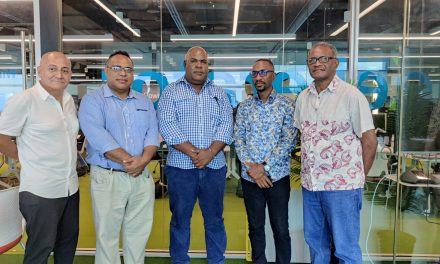What you should know about Financial Inclusion
CBSI Media
Article No. : 07/2021
This week we will look at the topic Financial Inclusion. We will try to understand what Financial Inclusion is and what role CBSI plays to drive the national agendas of financial inclusion.
What is Financial Inclusion?
Financial inclusion is normally described than defined. It covers 4 broad areas: Access, Usage, Quality and Impact.
Access – concerns about the physical distance of financial services access points to the customers. For instance, how far away are those financial services agents to the people? Do the people access them easily? It also concerns about the barriers that stop people from accessing those services, for example, what stops people from opening a basic bank account? It aims at getting the financial services accessible by almost all people.
Usage – concerns about how frequent or regular customers use those financial services after they access it. Are people using those financial services that are available? If not, what are the reasons.
Quality – concerns about whether those financial services are affordable, appropriate or are the right products that will benefit customers. It also concerns about the cost involved in accessing these financial services such as fees and charges involved. It also concerns about customer protection and customer education so that they are well aware of the services and can make the right choices.
Impact – concerns about how the financial Services improve people’s well-being. What impact it has on the individual or household? Does it improve their standard of living? What impact it has on the economy as a whole? It is the end result of the financial inclusion objective in any country.
The Central Bank of Solomon Islands (CBSI) drives the financial inclusion goals through the development and implementation of the National Financial Inclusion Strategies. CBSI as a member of the Alliance for Financial Inclusion (AFI), has made commitments to the Maya Declaration and adopted the Denarau Action plan to specifically advance women’s financial inclusion. These commitments were translated into gender-specific policy objectives in our National Financial Inclusion Strategy 2011-2015 (NFIS 1), making Solomon Islands the first country in the world to integrate women’s financial inclusion into a national strategy.
Since then, the CBSI has successfully implemented the second National Financial Inclusion Strategy (NFIS 2) and initiated digital financial services (DFS) as a policy objective to facilitate the provision of fast, safe and affordable financial services, especially to women and rural families, such as YouSave lo mobile. This resonates well within the Solomon Islands given its numerous challenges which are best addressed by pursuing a digital approach to financial inclusion.
Earlier this year, on the month of April, CBSI launched the third National Financial Inclusion Strategy 2021-2025 (NFIS 3). It draws on the successes of the past strategies and will further strengthen the financial inclusion journey towards achieving the vision to “Ensure all Solomon Islanders have access to a range of quality and affordable financial services and products and be competent to use them to increase their resilience and improve livelihood within the growing digital economy.”
The vision is supported by a clear mission with goals, targets and actions to be implemented through a robust coordination structure. The NFIS 3 is aligned to the Solomon Islands Government’s National Development Strategy (NDS) 2016-2035 objective 1, which entails to achieve a ‘sustained and inclusive economic growth’ by improving the social and economic livelihoods of all Solomon Islanders.
In our next article we will look into detail the Strategic mission, goals and objectives of NFIS 3.
The Establishment of NFIU & Its Roles and Responsibilities
It is important to note that CBSI through the National Financial Inclusion Unit (NFIU) has the primary role to promote financial inclusions in Solomon Islands as provided for under Section 9(n) of the CBSI Act 2012.
Consequently, the NFIU was established in 2011. The unit’s secondary role is to act as the secretariat for the National Financial Inclusion Taskforce (NFIT), a body approved by the Cabinet to act as the oversight agent in the implementation of the financial inclusion medium term national action plan (2011-2015).
NFIU coordinates and work together with various stakeholders in the country including the government, the private sector, financial institutions, development partners, faith-based organizations, civil societies, women groups, youth groups, NGOs, our international affiliates and individuals who are responsible to implement NFIS 3 action plans and to achieve its vision and objectives by 2025.
The NFIT is to oversee the implementation and provide strategic direction to the National Action Plans on Financial Inclusion in Solomon Islands.
Coordinating and expanding all financial inclusion initiatives under NFIS3 for the benefit of Solomon Islanders with regards to financial literacy and access to financial services can only be achieved with the cooperation of all relevant stakeholders under the NFIS3.
NFIU and its stakeholders also provides financial literacy trainings and awareness. Further, under NFIS3, NFIU will continue its role to coordinate and act as a secretariat to the working groups of the NFIT namely, Digital Financial Working Group (DFWG), Micro Small Medium Enterprises Working Group (MSMEWG), Consumer Empowerment Working Group (CEWG) and Data Working Group (DWG). These working groups will assist the implementation of the NFIS3 action plans.
For more information click on the link
http://www.cbsi.com.sb/financial-inclusion/ and learn more about financial inclusion in Solomon Islands.
End//


